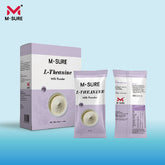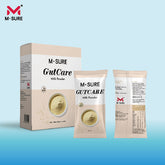Specialized Nutritional Requirements for Endurance Sports
by
BiotechAusway
01 Aug 2025
I. High-Intensity Energy Sustenance Systems
Carbohydrates
Core Function:
-
Supply 50–65% of total calories
-
Maintain muscle glycogen reserves to delay fatigue
-
During activities >1hr (e.g., marathon/cycling): 30–60g fast-acting carbs/hour
Strategy:
-
2 days pre-event (glycogen loading): Emphasize low-GI carbs (e.g., oats, whole wheat)
-
During exercise: Use isotonic drinks with glucose + fructose (osmolarity ≤8%)
L-Carnitine
-
Function: Shuttles fatty acids into mitochondria; spares glycogen
-
Dose: 500–2000mg daily, taken 30 minutes before morning training
II. Muscle Repair & Anti-Catabolism
| Nutrient | Function | Protocol |
|---|---|---|
| Whey Protein | Rapidly repairs muscle microtrauma | 20–40g within 30 minutes post-exercise |
| BCAAs | Reduces muscle breakdown, delays fatigue | 5–10g before fasted training + Vitamin B6 |
| Creatine | Boosts phosphocreatine stores, enhances power | 3–5g daily (especially before high-intensity sessions) |
Synergy:
-
Combine protein + carbs at a 1:3 ratio (e.g., 40g protein + 120g banana)
-
→ Accelerates glycogen resynthesis & muscle repair
III. Metabolic & Antioxidant Defense
Electrolytes
-
Sodium: 500–700mg/hour (preload 2 hours before heat exposure)
-
Other key minerals: Potassium, Magnesium
-
→ Prevents dehydration and muscle cramps
Iron
-
15–20mg daily (from red meat or blood-based foods)
-
→ Prevents sports anemia
Antioxidant Matrix
-
Vitamins C & E: Neutralize free radicals (from citrus, nuts)
-
Vitamin C: 100–200mg/day
-
-
Coenzyme Q10: Enhances mitochondrial energy output
-
30–100mg/day + fish oil
-
IV. Special Population Protocols
Vegetarian Athletes
-
Supplement with pea protein
-
Use iron supplements (non-heme iron requires Vitamin C co-ingestion)
Aged Populations
-
5g BCAAs + Vitamin D (1,000–4,000 IU/day)
-
→ Counters sarcopenia and bone density loss
Fat-Loss Phase
-
Reduce post-workout carbs to 0.5g/kg body weight
-
Increase protein intake ratio
Critical Cautions
-
Protein overload (>2.2g/kg/day): Can strain kidneys — requires medical supervision
-
Electrolyte imbalance: Risk of hyponatremia — avoid excessive intake of pure water






